Filter by
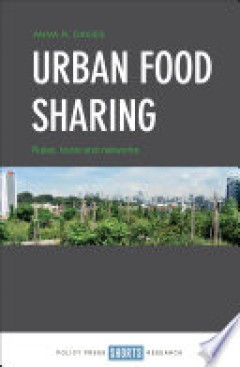
Urban Food Sharing : Rules, tools and networks
Available Open Access under CC-BY-NC licence. This book explores the history and current practice of food sharing. Illustrated by rich case studies from around the world, the book uses new empirical data to set an agenda for research and action. The book will be an important resource for researchers, policy makers and sharing innovators to explore the impacts and sustainability potential of suc…
- Edition
- -
- ISBN/ISSN
- 9781447349846
- Collation
- -
- Series Title
- -
- Call Number
- 363.8091732 ANN u
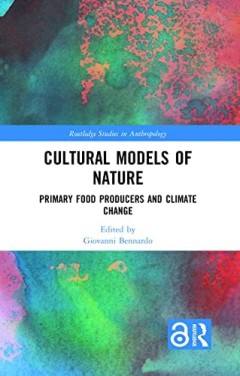
Cultural models of nature
Drawing on the ethnographic experience of the contributors, this volume explores the Cultural Models of Nature found in a range of food-producing communities located in climate-change affected areas. These Cultural Models represent specific organizations of the etic categories underlying the concept of Nature (i.e. plants, animals, the physical environment, the weather, humans, and the supernat…
- Edition
- -
- ISBN/ISSN
- 9781351127905
- Collation
- 394p. : ill.
- Series Title
- -
- Call Number
- 338.19 CUL c

A Guide to Sustainable Corporate Responsibility From Theory to Action
This open access book discusses the challenges and opportunities faced by companies in an age that increasingly values sustainability and demands corporate responsibility. Beginning with the historical development of corporate responsibility, this book moves from academic theory to practical application. It points to ways in which companies can successfully manage their transition to a more res…
- Edition
- -
- ISBN/ISSN
- 9783030882037
- Collation
- XIV, 274 p ; ill
- Series Title
- -
- Call Number
- 658.408 GUI
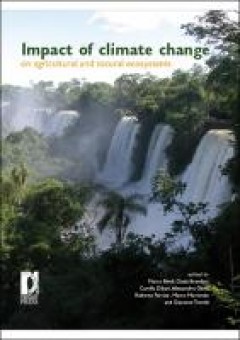
Impact of climate change on agricultural and natural ecosystems
This book illustrates the main results deriving from fourteen studies, dealing with the impact of climate change on different agricultural and natural ecosystems, carried out within the Impact of Climate change On agricultural and Natural Ecosystems (ICONE) project funded by the ALFA Programme of the European Commission. During this project, a common methodology on several Global Change-related…
- Edition
- -
- ISBN/ISSN
- 9788884539212
- Collation
- 244 p. : ill.
- Series Title
- -
- Call Number
- 551 MAR i

Decolonising blue spaces in the anthropocene: freshwater management in Aotear…
This open access book crosses disciplinary boundaries to connect theories of environmental justice with Indigenous people’s experiences of freshwater management and governance. It traces the history of one freshwater crisis – the degradation of Aotearoa New Zealand’s Waipā River– to the settler-colonial acts of ecological dispossession resulting in intergenerational injustices for Indi…
- Edition
- -
- ISBN/ISSN
- 9783030610715
- Collation
- xii, 494p. : ill
- Series Title
- Palgrave Studies in Natural Resource Management
- Call Number
- 363.700993 MEG d
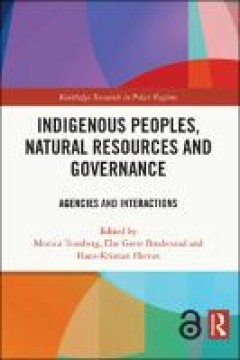
Indigenous peoples, natural resources and governance : agencies and interactions
This book offers multidisciplinary perspectives on the changing relationships between states, indigenous peoples and industries in the Arctic and beyond. It offers insights from Nordic countries, Canada, Australia, New Zealand and Russia to present different systems of resource governance and practices of managing industry-indigenous peoples’ relations in the mining industry, renewable resour…
- Edition
- -
- ISBN/ISSN
- 9781003131274
- Collation
- xiv, 216 p. : ill.
- Series Title
- -
- Call Number
- 333.2 TEN i
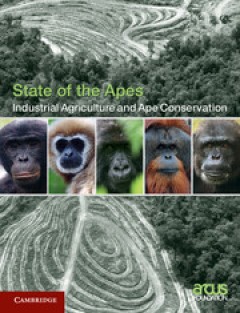
Industrial agriculture and ape conservation
Social and economic systems worldwide are changing rapidly. These changes are accompanied by an increasing demand for natural resources, including land, water, minerals, energy sources, food and timber. Today's foremost challenge lies in finding the tools to address the complexity of these interrelated trends, and in implementing strategies to balance environmental and socioeconomic needs. This…
- Edition
- -
- ISBN/ISSN
- 9781316505236
- Collation
- xxvi, 360 p. ; ill
- Series Title
- -
- Call Number
- 599.88 RAI i
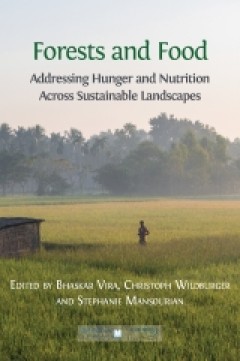
Forests and food : addressing hunger and nutrition across sustainable landscapes
As population estimates for 2050 reach over 9 billion, issues of food security and nutrition have been dominating academic and policy debates. A total of 805 million people are undernourished worldwide and malnutrition affects nearly every country on the planet. Despite impressive productivity increases, there is growing evidence that conventional agricultural strategies fall short of eliminati…
- Edition
- -
- ISBN/ISSN
- 9781783741953
- Collation
- viii, 280 p. : ill.
- Series Title
- -
- Call Number
- 338.19 WIL f
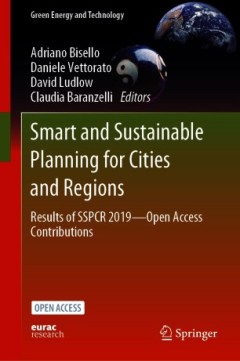
Smart and sustainable planning for cities and regions : results of SSPCR 2015
This open access book offers a selection of research papers and case studies presented at the 3rd international conference “Smart and Sustainable Planning for Cities and Regions”, held in December 2019 in Bolzano, Italy, and explores the concept of smart and sustainable planning, including top contributions from academics, policy makers, consultants and other professionals. Innovation pr…
- Edition
- -
- ISBN/ISSN
- 9783030577643
- Collation
- xvii, 307p. : ill.
- Series Title
- -
- Call Number
- 307.1216 SMA s
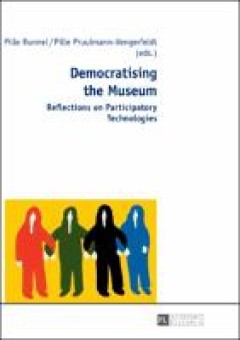
Democratising the museum : reflections on participatory technologies
Democratising the museum is a collection of articles reflecting upon the problem of how participation, technologically mediated or not, can support the museum in the process of becoming more accessible. The open museum shares power with its visitors while negotiating professionalism and the role of the museum in a modern society. The book looks at the roles and struggles of audiences/visitors a…
- Edition
- -
- ISBN/ISSN
- -
- Collation
- 240 p.
- Series Title
- -
- Call Number
- 069 DEM d
 Computer Science, Information & General Works
Computer Science, Information & General Works  Philosophy & Psychology
Philosophy & Psychology  Religion
Religion  Social Sciences
Social Sciences  Language
Language  Pure Science
Pure Science  Applied Sciences
Applied Sciences  Art & Recreation
Art & Recreation  Literature
Literature  History & Geography
History & Geography